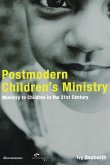When the wicked have traveled a course of sin, and discover they have reason to fear the God;s judgement and wrath for their sins, they begin to wish there is no God to punish them, then by degrees they persuade themselves there is no God, and then they set themselves to study the arguments to support their opinion. This excellent book by John Bunyan covers the subject matter of the existence of heaven and hell as well as studies and dispells the arguments presented by sinners who argue there is no heaven and hell. Most do not know that Bunyan wrote some 60 books, and poetry too. And also almost a well-kept secret is that his doctrine was so biblically laced that many good men would call him too severe. He believed in, and taught, ALL the doctrines of grace, including double-predestination, or reprobation. Why then is he not smeared with the name of hyper-Calvinist like Goodwin, Gill, and others? I guess the same people ought to call Luther a hyper-Lutheran, for he believed and taught it, too. Why begin a review of Bunyan's writings with such a view of his doctrine? It is to show that a Pilgrim's Progress can come only from someone who believes and teaches ALL the counsel of God, without flinching, yea, with loving-kindness. Illegally, He sat in a jail cell over a river for 12 years with his Bible, Galatians by Luther, and another book or two. He had the choice of feeling miserable and murmuring, or of filling his time, thoughts, and energies with studying that Bible, and seeking a way to be of help to his more comfortable, but less dedicated, brothers and sisters. Listen, dear saints, you can't do any better than reading Bunyan. Like Gurnall, he covers everything here and there, and with a sweetness that can come only from God. What a shame that his large heart should be encased in such small print. But, like digging gold, it is worth the time and trouble to dig spiritual gold. Bunyan (1628-1688) rose from an humble beginning to being a preacher to a little house church, to 12 years in jail because he would not agree to quit preaching, to a huge church in London. He wrote 66 books, nearly all while in jail.
Hinweis: Dieser Artikel kann nur an eine deutsche Lieferadresse ausgeliefert werden.
Hinweis: Dieser Artikel kann nur an eine deutsche Lieferadresse ausgeliefert werden.









